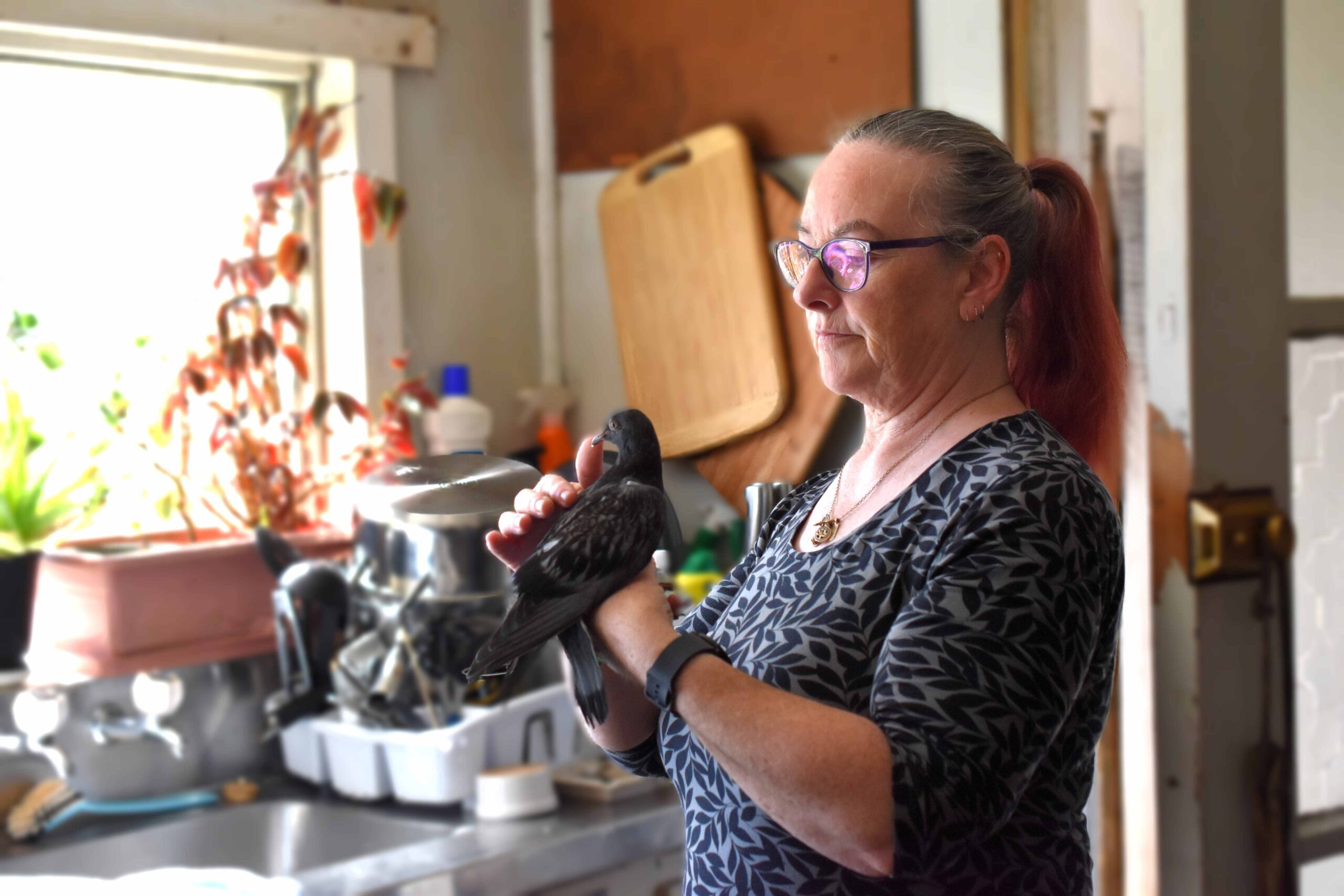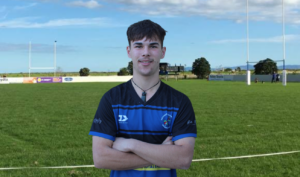Visitors to Traci Vivian’s home can expect to be greeted with squawks and the sound of rustling feathers. On any given day the Waihī woman has up to a dozen birds distributed around the house in cages, pens and heated tanks. Many of them will be injured or ill; some will be motherless fledgelings needing a helping hand to get started in life.
Traci has been rescuing and rehabilitating birds for over a decade, and has seen hundreds of feathered patients through her doors. Land birds and seabirds turn up from the surrounding community and as far away as Matamata, Te Poi and Thames.
Today the kitchen is occupied by a duckling, two fledgeling starlings, a cockatiel and a chatty magpie named Raucous. There are also at least 25 other birds outside, in aviaries Traci has cobbled together from recycled materials.
“My aim is to have a few more setups in the backyard so I don’t have to do soft releases at other people’s places, [but] it’s more important that I buy their food and medicines,” Traci said.
“Every bird has got a different diet and needs … none of it’s cheap. A bag of pigeon food that lasts 2 weeks is about $70.”

But Traci rarely asks for help, although she will occasionally put out a call on Facebook for linens and paper towels, or ask for donations to be sent directly to the wildlife account at Franklin Vets in Waihī.
“It’s not about me, it’s about the birds. I don’t ask for anything from anyone, that’s just the way I am,” she said.
“I’ve always liked animals, from a tot. I rescued school rats – when I found out those were going to get dissected I had to sneak those home because there was no way I wanted them put on the table.”
She found her first bird, a near-dead sparrow chick, in a downed nest 11 years ago. She revived it with a hot water bottle and weetbix, before calling a vet for advice.
“I ended up with Mario for about nine years until he passed away. He was on the brink of death,” Traci said, recalling how the little bird was determined to stay with her.
“He didn’t want to go. Every time you stepped outside with him he’d fly back inside. Every morning you’d let him out, he’d have a bath in the kitchen sink and then he’d be back on your shoulder. [He was a] horrible little thing because he used to bite something chronic, but that’s a sparrow for ya.”
Most of her birds will be released once they are well, or rehomed if they are unsuitable for the wild.
“If I kept every single bird the house will be full of ‘em,” she said.
“The best bit though is letting them go. It’s no different to a second chance for a human being – to me it’s a second chance for wildlife.
“I enjoy seeing them get released, and for those that unfortunately don’t get released it’s always nice when I find a really great home for them.”
Right now Traci is preparing for the annual influx of birds with botulism. It’s an ideal time for anyone interested in bird rescue to get involved, Traci said, with both herself and her mentor, Thames woman Frances Southorn, expecting to be inundated with patients as the weather heats up.
“If people want to get into this I encourage it. And if they want information Frances is only too happy to mentor, to train and to pass on her experience,” she said.
“I’ve not studied, I’ve not done anything. It all just seems to fall into place. [Each] new species, I get on the internet and research it, ring up the mentor.”
DETAILS: Traci Vivian can be reached on Facebook for help with injured birds, and donations should be directed to Franklin Vets Waihī’s wildlife fund.





